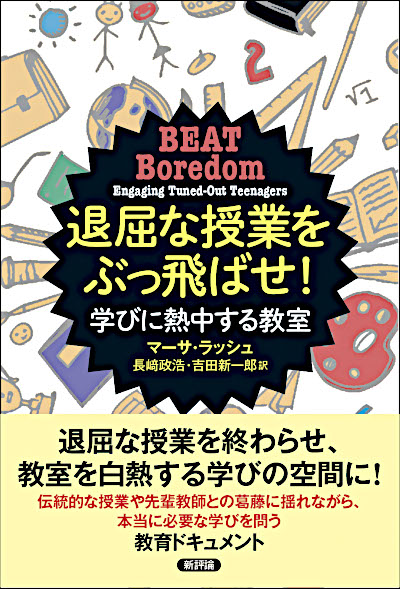Tue, Nov 16, 2010
Kochi 英語 Connection
-Kochi 英語 No. 144-
こんまいニッポンにあだたぬ若いしをつくろうやいか!
■■■■■■■■■■■■■■■■■■■■■■■■■
~ブログ更新情報~
*英語授業研究会、英語ディベート研究プロジェクト会、
GOIKEN (英語語彙研究会) 、研修会、講演会等の情報
http://kochi-e-project.
*立教大学経営学部HPに高知県英語ディベート大会の様子
が掲載されました。
http://cob.rikkyo.ac.jp/
■■■■■■■■■■■■■■■■■■■■■■■■■
East Shikoku JALT Workshop
■■■■■■■■■■■■■■■■■■■■■■■■■
East Shikoku JALT has the good fortune of hosting Alan
Maley as part of the JALT2010 Four Corners Tour. Alan
will be a plenary speaker at the National Conference in
Nagoya next weekend. After the Conference he will be
speaking throughout Japan. For those of you unable to
attend the National Conference, please join us Wednesday
evening at Kochi Women's University for Alan's workshop.
Speaker: Alan Maley, Leeds Metropolitan University
Title: Where Do New Ideas Come From?
Date/Time: 6:30-8:00, Wednesday, Nov. 24th
Place: Kochi Women's University, Eikokuji Campus,
Meeting Room 1
(1st floor - 5 meters from the main entrance)
JALT members: free
One-day members: 500 yen
In my 40 years in ELT, I cannot recall a time when ‘new
ideas’ was not on the agenda! I shall suggest five possible
sources for such new ideas. I shall also suggest that this
search, though it may ultimately lead to dead ends, has an
important motivational and developmental function for
teachers and trainers. Along the way, I shall suggest how
some of these sources might be linked to Action Research
projects. The five sources are:
1. Teacher Interaction: Here I shall explore the various kinds
of interaction which often produces innovative ideas ? ranging
from formal training contexts, through semi-formal professional
contexts such as conferences, to informal exchanges in staff rooms.
2. Heuristics: By heuristics, I refer to basically simple ‘rules of
thumb’, which, when applied inevitably change the teaching
interaction. I will deal in some detail with John Fanselow’s ‘do
the opposite’ (Fanselow, 1978). I shall also point out the heuristic
basis of the ‘designer methods’ (Suggestopoedia, etc.). Other
heuristics, such as ‘withhold information’ will also be mentioned.
3. Re-explorations of Traditional Techniques: Here I describe some
areas which have been renovated by creative thinking; dictation,
homework, vocabulary, reading and grammar, and suggest some
others ripe for re-development, such as repetition, questions,
dialogues, drills and translation.
4. Borrowing from Feeder Fields: These fields will include NLP,
Multiple Intelligences, Music, and Art. I shall suggest that there
are potential benefits to be had from considering areas such as
Neuro-science, the psychology of Consciousness, and Creativity
theory itself.
5. New Developing Areas: The most obvious (with certain caveats)
is Information Technology. I shall also refer to Literature, Global
Issues and CliL as content-related areas, and to Young Learners
and Advanced Learners as areas for development. Recent renewed
interest in ‘Flow’ (Czikszentimihalyi, 1990) will also be included.
From 1962-1988, Alan Maley worked for the British Council in
Jugoslavia, Ghana, Italy, France, China and India. He was Director
-General of the Bell Educational Trust in Cambridge from 1988-1993
and then worked as Senior Fellow at NUS, Singapore until 1988.
From 1999-2003 he set up and ran the graduate programme in ELT
at Assumption University, Bangkok. He is currently Visiting Professor
at Leeds Metropolitan University, UK, a freelance writer and consultant.
He has published over 40 books and numerous articles.
Check out our website for more East Shikoku JALT info:
http://eng.core.kochi-tech.ac.
**************
Darren Lingley
President
East Shikoku JALT
Professor
Department of International Studies
Faculty of Humanities and Economics
Kochi University
Tel: 81(088)844-8203
■■■■■■■■■■■■■■■■■■■■■■■■■
グルグル通信: いつでもread and look up
■■■■■■■■■■■■■■■■■■■■■■■■■
授業中は、英語を答えるときは、必ず教師の顔を見て、
というルールを確立
read and look up は、一斉練習の時のためだけではない。
reading と speakingの橋渡しをする基本的テクニックであって、
授業のあらゆる局面に使うべきものだ。個人を指名して答え
させるとき、ゲームで挙手して答える時も、すべて、read and
look up で、きちんとリズムと発音していないと、OKにならない
んだ、という感覚をはやく確立つることが必要。
--
Shizuka Tetsuhito, PhD.
Professor
Faculty of Education
Saitama University, Japan
http://sites.google.com/site/
Blog: http://cherryshusband.
■■■■■■■■■■■■■■■■■■■■■■■■■
第1回よさこいカップ
The 1st Yosakoi Cup Debate Tournament
for Young Learners of English
■■■■■■■■■■■■■■■■■■■■■■■■■
日 時: 12月19日(日)10:00-17:00
場 所: 高知大学朝倉キャンパス(予定)
問合先・申込先:
高知西高校内高教研英語部会事務局 中馬 剛
〒780-8052 高知市鴨部2-5-70
TEL(088)844-1221 FAX(088) 844-4823
E-mail: takeshi_chuma@kt4.kochinet.ed.
締め切り: 12月3日(金)
<参加資格>
1.高知県内公立高校の1・2年生。
2.他校生徒との交流の場として積極的に行動できる方。
3.教育目的でのビデオ撮影に同意する方。
<チーム構成>
1チーム3~4名。1校3チームまで出場可。ただし、今回は
全体で20チームを出場最大数と設定し、全体枠に余裕が
あれば、追加チームを認める場合もある。
<論題>
All Japanese senior high schools should abolish their school uniforms.
「日本の全ての高等学校は制服を廃しすべし。」
<参加費>
1チーム1,000円
<対戦方法・試合形式>
事務局添付した要項を参照してください。
■■■■■■■■■■■■■■■■■■■■■■■■■
高見健一先生の「授業に役立つ英文法講義」
■■■■■■■■■■■■■■■■■■■■■■■■■
『謎解きの英文法』などでおなじみの高見健一先生(学習院
大学教授)が高知大学へいらっしゃいます!高見先生の講
義を受講した方は,一様に「目から鱗だ!」と感動されます。
難しい内容を素人にもわかるように丁寧に説明してください
ます。質疑応答の時間も設けていますので,日頃悩んでいる
ことなど相談されてはいかがでしょうか?大学生,大学院生,
英語教師,一般(高校生もOKですよ)の方どなたでも参加でき
ます。多くの参加をお待ちしています。
申込はココ
→ http://www.keles.jp/cgi-bin/
主催 高知英語学英語教育研究会(KELES)
日時 2010年12月11日(土)10:30~16:00
場所 高知大学教育学部51番教室
資料代 500円(当日受付で徴収します。)
昼食 各自ご用意ください
【講師紹介】 高見健一先生(文学博士)
静岡大学助教授、ハーバード大学言語学科客員研究員、
ハーバード大学イエンチェン研究所共同研究員、東京都立
大学教授を経て、現在、学習院大学教授。日本英語学会
評議員、日本言語学会評議員。市河賞受賞。著書論文多数。







No comments:
Post a Comment